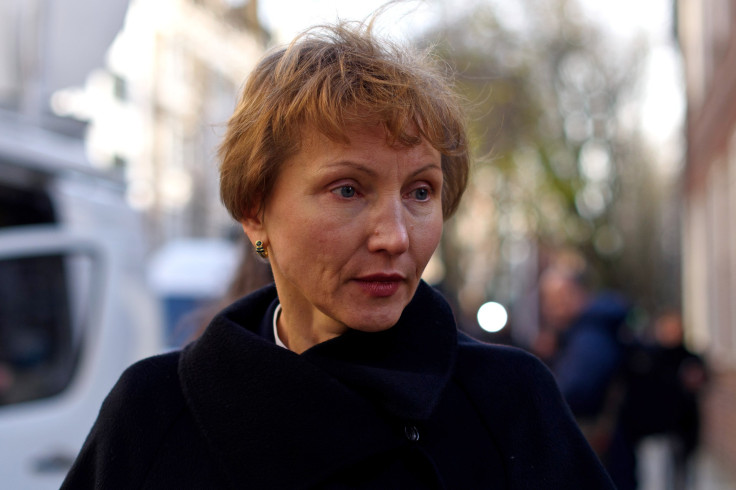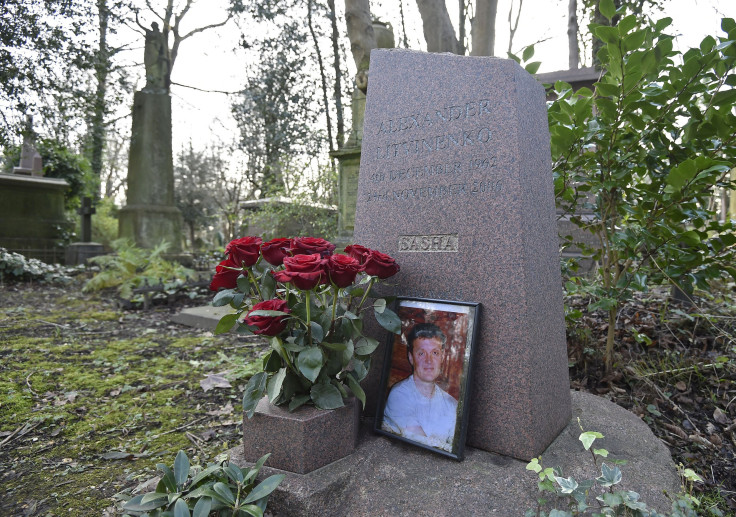After Litvinenko, Why Europe Won't Stop Putin From Killing His Enemies Abroad

The U.K.'s more than 300-page inquiry into the 2006 poisoning death of former Russian spy Alexander Litvinenko revealed in stark language what many people had long suspected: Russian President Vladimir Putin “probably approved” the killing. Litvinenko’s widow, Marina, called Thursday for a strong response from the British government with targeted economic sanctions and travel bans against individuals including Putin and former security services head Nikolai Patrushev, as well as the expulsion of all Russian intelligence operatives based in London.
But Russia’s close economic ties with European states and its growing importance in the fight against the Islamic State group, as well as its roles in the conflicts in Syria and Ukraine have made it increasingly difficult for the West to rein in the bear. While there are several steps the U.K. government could take in response to the inquiry’s findings, the quest for justice at the top levels of the Kremlin will likely remain elusive. (Litvinenko had fled Russia to the U.K.
“We have to weigh carefully the need to take measures with the broader need to work with Russia on certain issues. When you look at the threat from Daesh, it is an example of where you put ... national security first,” said British Prime Minister David Cameron’s spokeswoman Thursday, using another name for ISIS.
The inquiry comes nearly a decade after Litvinenko's death and was opened in 2014 when the U.K. was applying sanctions against the Kremlin over its actions in Ukraine, although the government denied a politically motivated link at the time. Litvinenko, a former Russian FSB agent, sought asylum in the U.K. in 2000 after publicly alleging he had been ordered to kill a friend and associate. The man who sat at the top of the FSB at the time was none other than Putin and Litvinenko became a vocal critic of the Russian leader.
Experts argue the U.K. government could take decisive action against the Kremlin, including looking at the opaquely acquired assets of Russians in London, calling for Russia’s removal from international organizations, lobbying for the removal of its hosting privileges for soccer's 2018 World Cup, and expanding sanctions so assets cannot simply be transferred to another family member, a popular loophole.
“The U.K. isn’t really serious about going after justice, and it’s considering trade and/or international relations and diplomacy instead,” said James Nixey, head of the Russia and Eurasia program at the London-based think tank Chatham House. “It thinks there is a higher purpose than one man’s life, and that’s just sad because what this actually does is it provides an opportunity for us to be more honest about the nature of Russia and how Russia is governed.”

Prior to applying sanctions against Moscow over the annexation of Crimea from Ukraine in March 2014, approximately 500 U.K. companies had a physical presence in Russia and exports to Russia were valued at more than $7 billion. Wealthy Russians have long poured their assets into London’s expensive real estate sector, with an uptick seen after the crisis in Ukraine began.
“I suspect in terms of asset squeezes the U.K. government is not worried so much about geopolitics and helping Syria and ISIS, I think it’s more worried about the expropriation of British assets in Russia in revenge,” Nixey said.
The Russian government was quick to react to the inquiry’s findings Thursday, describing them as “a gross provocation” while continuing to deny any role in the polonium-210 poisoning that killed the former Russian spy in 2006. The U.K. moved to freeze the assets of Andrei Lugovoi and Dmitry Kovtun, the two men accused of poisoning Litvinenko at the Millennium Hotel in London, and summoned the Russian ambassador to express “profound displeasure.”
“We are going to see the British government doing the minimum it can without completely losing credibility,” said Mark Galeotti, a professor of global affairs at New York University and a specialist on Russia. “It doesn’t change the balance of interests between the two countries … Both sides have to play their roles in this little drama.”
With Russia beginning airstrikes in Syria in September and pledging to help fight ISIS, the Kremlin has positioned itself in the middle of several key conflicts Western governments have been trying to resolve and for which they need Russian support.
“The West has given strong signals it wants to work with Russia on Syria and ISIS,” said Anna Borshchevskaya, an expert on Russian policy in the Middle East at the Washington Institute for Near East Policy think tank. “So in this context it adds a layer of complexity about what would happen in terms of getting ultimate justice for Litvinenko.”
Galeotti argued Litvinenko’s killing can be viewed as an act of intimidation against the large Russian expatriate community in the U.K. that has spoken out against Putin’s government. The assassination fits a pattern that goes back to the Soviet era with the death of Bulgarian dissident Georgy Markov who died in London in 1978 after being stabbed with the tip of an umbrella that contained a ricin pellet. More recent cases include the 2015 killing of Russian opposition leader Boris Nemtsov steps away from the Kremlin and the 2006 death of journalist Anna Politkovskaya.
Litvinenko "probably" assassinated by Putin is why everyone but me laughs when I say I don't drink tea w strangers. https://t.co/ptyfrmv81Q
— Garry Kasparov (@Kasparov63) January 21, 2016Few legal outlets remain in the Litvinenko case with Russia unlikely to agree to any kind of tribunal and Russian courts unlikely to hear any case seeking damages. The Kremlin has already refused to extradite either Lugovoi or Kovtun.
“We continue to close our eyes to Putin’s abuses and how destabilizing these abuses are,” Borshchevskaya said.
© Copyright IBTimes 2024. All rights reserved.






















